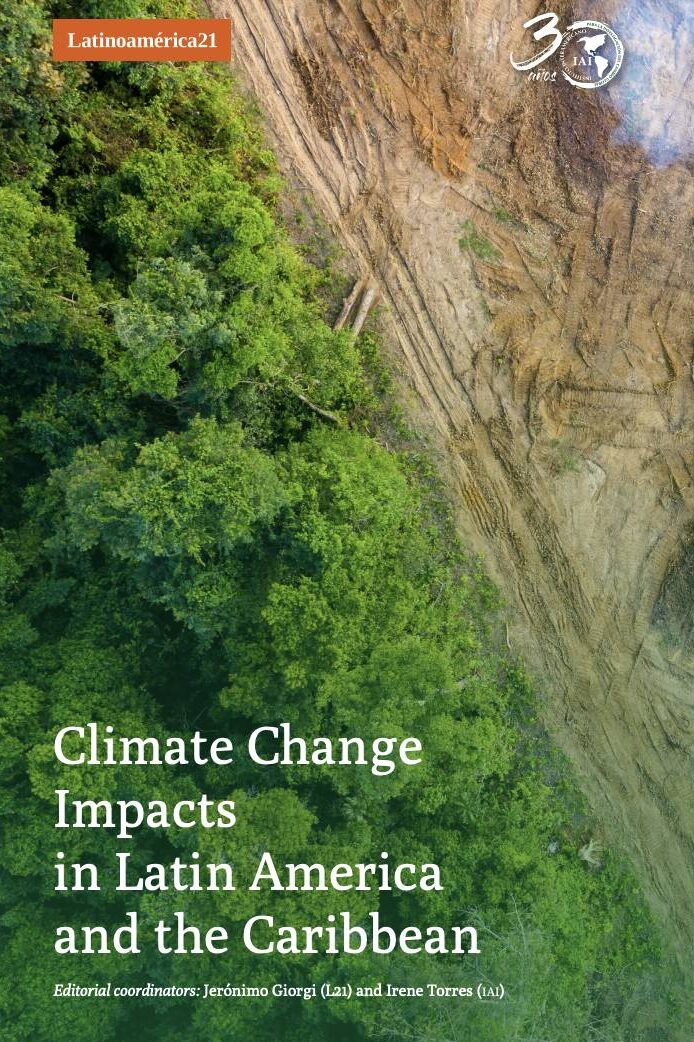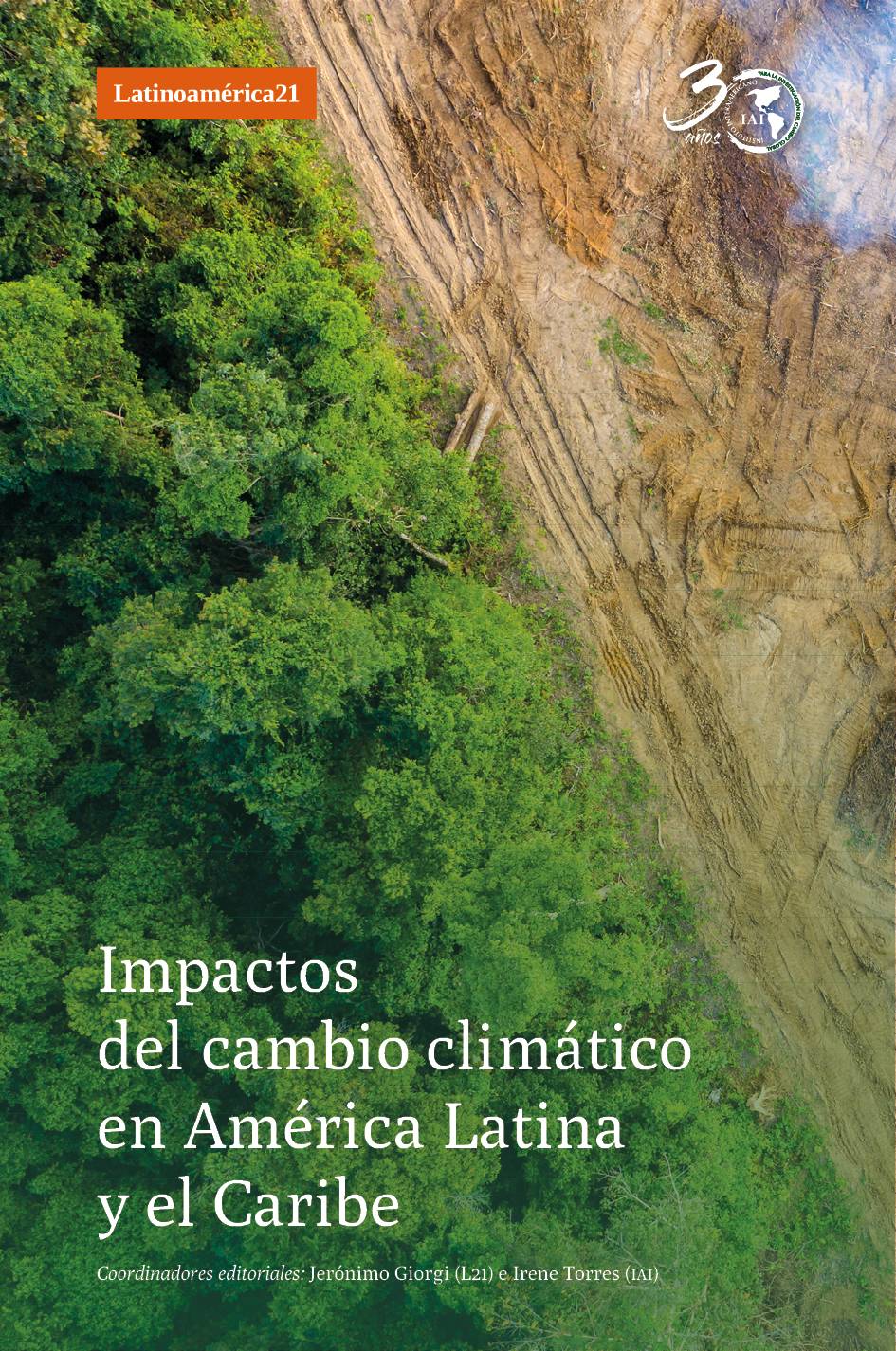On November 6, the 27th Conference of the Parties, COP27, opened in Sharm el-Sheikh (Egypt), the most important annual event on climate change that brings together heads of state, ministers, mayors, activists, civil society representatives, and CEOs to address the climate emergency. At the opening of COP27, UN Secretary-General António Guterres stated that humanity must choose climate solidarity, choosing between cooperating or dying to avoid collective suicide. However, the effects of climate change are differentiated and have more weight in regions such as Latin America, whose territory is especially vulnerable to natural disasters, despite being responsible for only 10% of global greenhouse gas emissions.
Climate change defines long-term transformations in temperatures and weather patterns. Although these alterations are historical and many of them are natural, in the Anthropocene, or New Geological Epoch of humanity, human action is considered to be the main cause of environmental problems, due to the burning of fossil fuels such as oil, coal, or gas.
Although the concept of the Anthropocene is widely accepted internationally, there are those who believe, based on critical positions, that the destructive effect of human activities on the environment cannot ignore political and economic power relations, as well as the inequalities that characterize them in global capitalism. The notion of Capitalocene, according to these issues, is more appropriate to discuss the devastating impacts caused by our model of production and consumption, as well as the differentiated responsibilities in the current ecological crisis. Beyond the context, the effects of climate change are multiple and include negative consequences on the economy, health, and security, but also on food production, ocean temperature, and sea level or migrations.
Climate change in Latin America and the Caribbean
In our region, the publication “Impacts of climate change in Latin America and the Caribbean”, produced by the Inter-American Institute for Global Change Research (IAI) and Latinomerica21, highlights some of the main effects of this phenomenon, ranging from the melting of Andean glaciers to extreme weather events such as the devastating floods and droughts that have occurred in Brazil, Venezuela, and Peru, or the hurricanes and typhoons that affect countries such as Cuba and the Dominican Republic.

The book is a scientific divulgation effort that seeks to make visible the heterogeneous effects of climate change in the region, but also provides solutions based on science and international cooperation. Thus, it is possible to understand that the rise in sea level, global warming, and acidification of the two great oceans that surround the continent, the Pacific and the Atlantic, produce consequences for people and animals, in addition to economic losses. One example is the continental shelf of southern Brazil, Uruguay, and northern Argentina, one of the largest marine hotspots in the world. In this area, artisanal fisheries in countries such as Uruguay are particularly vulnerable to the effects of climate change that lead to the reduction or impossibility of fishing, due to fish mortality, as well as red tides and the risks of food poisoning that these phenomena entail, which generates heavy economic losses and forces the local population to change their way of life in order to survive or migrate.
Climate change, together with deforestation and changes in land use, implies greater circulation and geographical distribution of individuals, animals, viruses, and disease vectors such as mosquitoes. These transformations, far from being innocuous, multiply the risk of new diseases and the emergence of pandemics. Today, in Latin America, there are, for example, outbreaks of dengue fever in cold regions in the Andes or in Argentine cities with temperate climates such as Córdoba, while the health sector’s funding problems and its poor preparedness for climate risks make us particularly vulnerable to future pandemics.
Education is another area affected. The pandemic caused unprecedented negative effects on learning and school dropout rates among children and young people in the region. Phenomena such as extreme heat also have an impact on the concentration, development, and well-being of students, while floods or hurricanes destroy school infrastructure and materials and prevent students from receiving an adequate education. In 2020, the devastating passage of hurricanes Eta and Iota caused a humanitarian crisis in Central America and destroyed hundreds of schools in Nicaragua, Guatemala, and Honduras.
The increase in migration from the Caribbean or Central America is directly associated with these phenomena and, although it is not a deterministic relationship, 17 million Latin Americans are expected to migrate by 2050 due to the effects of climate change.
We are living in a decisive moment in the face of the challenges of the climate emergency. Although the effects of climate change are becoming stronger in regions such as Latin America and the Caribbean, science leaves no room for ambiguity: climate change is a present-day challenge that threatens the well-being and survival of people and the planet.
As the recent IPCC report (2022) showed, with 1.1° of warming, climate change is already causing widespread consequences in all regions of the world and, if we fail to halve greenhouse gas (GHG) emissions in this decade and promote adaptation policies immediately, the repercussions will be catastrophic.
In this regard, the COP27 summit represents a unique opportunity to prioritize the environmental and climate agenda, as well as to promote solidarity and cooperation on several fronts. It is no longer a matter of choice: there are no alternatives for the planet.
*Translated from Spanish by Janaína Ruviaro da Silva












